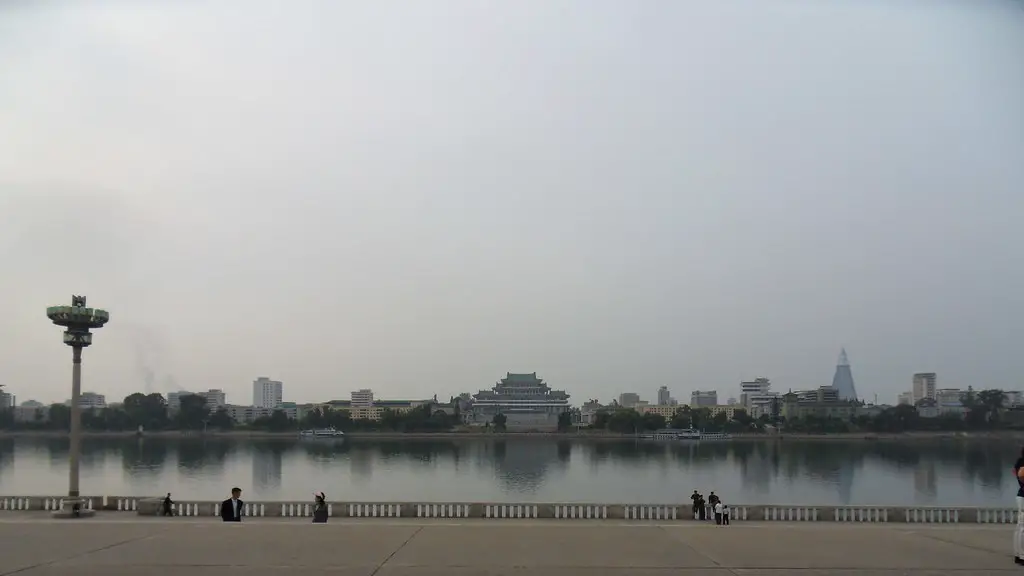The tension existing between North Korea and South Korea is a complex problem, rooted beyond simple territorial disputes. Since the Korean War, conducted from 1950 to 1953, rivalry between the two countries contributed significantly to the ongoing conflict between them. Over the years, the intensification in military operations and escalated tensions have led to an almost complete break in diplomatic relations.
The Korean War was a Cold War conflict in which forces from North Korea invaded South Korea. A series of UN-led interventions and negotiations followed, culminating in an armistice agreement signed on July 27, 1953, which effectively put an end to the war. This also led to the demarcation of the Korean Demilitarized Zone (DMZ) along the 38th parallel, separating the North and South of the peninsula.
The DMZ, a 2.5 mile wide piece of land stretching across the Korean peninsula, is one of the most heavily guarded borders in the world. No military action is permitted on either side but despite this, the region remains one of the most visible signs of the ongoing hostility between the two countries.
The global community has exerted diplomatic efforts in order to reduce the tensions, yet it seems that the two remain firmly ensconced in their respective political standpoints. The key issue faced by both sides is that of trust, as negotiations and discussions to date have failed to achieve any real progress. Consequently, distrust and hostile attitudes continue to be the point of contention.
The greatest source of contention between North Korea and South Korea is the threat of nuclear weapons. North Korea has been steadily building up its nuclear arsenal in recent years, much to the dismay of its southern neighbour. South Korea’s fear of North Korea’s nuclear capabilities has led to a volatile situation between the two countries, raising concerns amongst the international community.
Notably, North Korea’s nuclear ambitions are considered as a major threat to global peace and stability in the region, and there has been a great deal of speculation as to when, and if, the regime will use their nuclear weapons. South Korea is particularly concerned about the potential for a nuclear attack and is determined to protect itself and its allies against a possible threat.
In conclusion, the ongoing and strained relationship between North Korea and South Korea has led to heightened tensions and military conflict, with no signs of a de-escalation in the foreseeable future. The two countries continue to remain in a state of disagreement, facing a standstill in negotiations. The question remains as to when, if ever, a resolution can be found and the two sides can come to a mutual agreement to maintain peace and stability in the Korean peninsula.
American Involvement
The United States Armed Forces have been involved with defending South Korea since the Korean War. The “US-ROK Mutual Defense Treaty” was signed in October 1953 and has continued ever since. It is believed that the presence of American forces acts as a deterrent to North Korea’s aggressive behavior towards the South.
The US carries an enormous responsibility in helping to maintain peace on the Korean peninsula, and have branded North Korea’s nuclear pursuits as “unacceptable”. The US has also imposed numerous economic sanctions on North Korea, in an attempt to force the regime to change its policies.
The US has seen some success in its diplomatic efforts. During talks between US President Donald Trump and North Korean Supreme Leader Kim Jong-un, the two leaders signed what was called the “Singapore Declaration”, expressing their commitment to the complete denuclearization of the Korean peninsula.
Since then, however, the situation between North Korea and South Korea have remained tense and fragile. North Korea has continued to sabotage talks and show little sincerity in their attempts to reach a meaningful accord. The US continues to remain committed to its mission to advance peace in the region and to protect the South from the North’s aggression.
The Xi Jinping Factor
China is a key player in the conflict between North and South Korea. China’s President, Xi Jinping, has sought to improve the relationship between the two countries, and his efforts have been instrumental in bringing the two sides to the negotiating table.
In 2018, President Xi and South Korean leader Moon Jae-in signed an ambitious bilateral agreement that signaled a further relaxation of tensions between North Korea and South Korea. The agreement sought to promote economic and cultural relations between the two countries and cemented President Xi’s role as both an intermediary and a mediator.
President Xi’s involvement in the talks between the two sides has resulted in some positive outcomes; however, there have been some setbacks as well. The North has seen President Xi’s role as one that is predominantly focused on advancing its own interests, and this has caused mistrust on both sides. Moreover, North Korea has responded to these diplomatic initiatives with a hardened stance and continues to threaten South Korea with its nuclear capabilities.
Despite this, President Xi remains firmly committed to resolving the conflict and restoring peace and stability in the Korean peninsula. His attempts to delicately navigate between both sides has been a valuable asset in the quest for peace.
Tensions Between Generations
South and North Korea’s generations of conflict have caused the current level of misunderstanding between the two Koreas. This generational gap has caused difficulties in reconciling the two countries’ differences, as each side has its own distinct political views, making it difficult to reach a consensus.
In South Korea, citizens have been taught to view North Korea as an enemy, while North Koreans have been heavily indoctrinated against the idea of reunification. North Koreans have been indoctrinated to view South Koreans as the enemies of their homeland, and to reject any unifying initiatives put forth. This has been paired with the North’s practice of disinformation, or spreading false information, which has only helped to further prevent any meaningful resolution.
The tensions between the two countries have been passed down through generations, making it difficult for the two sides to set aside their differences and work towards a peaceful resolution. Consequently, this has led to further entrenchment between North and South Korea, as each side continues to stand by their distinct political views. The lack of understanding between the two sides remains a considerable obstacle to any kind of meaningful resolution.
International Climate
Tensions between North and South Korea arise amidst the global climate of competition and conflict. This atmosphere has been further exacerbated by a general decline in trust in the international community and rising levels of mistrust in global institutions.
The United Nations and other international organizations, such as the European Union, have historically played an important role in helping to maintain stability in regions of conflict. However, these organizations have often been either unwilling or unable to broker an agreement between North and South Korea. It is evident that the political climate of today has put additional strain on the already fragile relationship between North and South Korea.
On the other hand, regional rivalries have also played a role in the rising tensions between North and South Korea. The competition between China and the United States, two of the most powerful countries in the world, has pushed the two countries to further militarize in order to protect their respective interests. This has created an environment of competition which has only served to heighten the tensions between North and South Korea.
Most recently, the US-China trade war has been a major source of worldwide geopolitical tension and has further complicated the situation between North Korea and South Korea. It remains to be seen how the two countries are able to navigate these events, and find a way to come to a peaceful resolution.





